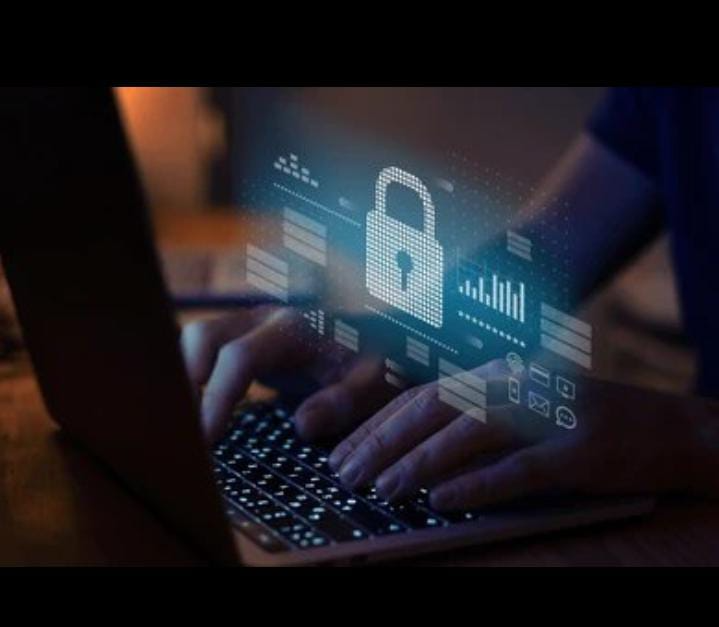
Cybersecurity is no longer just a technical concern—it's a critical need for every organization. As cyber threats become more sophisticated and frequent, the demand for skilled professionals to defend against them has skyrocketed. Among these professionals, cybersecurity analysts play a key role in protecting sensitive data and ensuring the safety of networks. With the rising importance of cybersecurity, this field offers a wealth of career opportunities. If you're considering entering this in-demand industry, earning a Cyber Security Master's Degree can provide you with the expertise and skills needed to thrive in this rewarding profession.
Cybersecurity threats are constantly evolving, and so are the job opportunities for professionals who can prevent, detect, and respond to cyber threats. The number of cyberattacks continues to rise, impacting not just large corporations but also small businesses, government institutions, and individuals. These attacks often result in data breaches, identity theft, ransomware, and financial loss, among other significant consequences. As a result, organizations are increasingly looking to hire cybersecurity experts to protect their assets.
Cybersecurity analysts play a critical role in this defense system. They monitor network traffic, identify vulnerabilities, and implement measures to prevent potential threats. With organizations becoming more digital and remote work becoming the norm, the demand for cybersecurity professionals has only grown. This surge in demand is expected to continue, making the cybersecurity field a great choice for anyone looking for job stability and a promising career path.
A Cyber Security Master's Degree provides you with the advanced knowledge and practical skills needed to succeed in this ever-evolving field. While a bachelor's degree in a related field is often a prerequisite, many positions in cybersecurity demand specialized education, which a master's degree can provide.
Here's how a Cyber Security Master's Degree can help you:
A Master's Degree in Cybersecurity offers deeper insight into the complex areas of cybersecurity, including encryption, penetration testing, threat analysis, and network security. It equips you with the tools and techniques needed to tackle sophisticated cyber threats. The curriculum typically focuses on areas like risk management, ethical hacking, digital forensics, and cryptography—skills that are essential for becoming a proficient cybersecurity analyst.
Many Cyber Security Master's Degree programs emphasize practical, hands-on learning. This allows students to work on real-world projects, case studies, and simulations that closely mimic the challenges they will face in the workplace. Gaining hands-on experience with cutting-edge cybersecurity tools and technologies prepares you to handle complex issues, giving you a competitive edge when applying for jobs.
With a Cyber Security Master's Degree, you are more likely to be considered for higher-level positions in cybersecurity. While entry-level roles may only require a bachelor's degree, many employers look for candidates with specialized education and experience to fill mid-level or senior positions. A master's degree can help you stand out in a competitive job market and increase your chances of landing a leadership role in cybersecurity.
Pursuing a Cyber Security Master's Degree also offers valuable networking opportunities. As you interact with fellow students, professors, and industry professionals, you build relationships that can open doors to job opportunities, collaborations, and mentorship. Networking in the cybersecurity field is vital, as it helps you stay up to date on trends, technologies, and best practices in the industry.
The curriculum of a Cyber Security Master's Degree program typically covers a wide range of topics. Some of the key skills you can expect to gain include:
By acquiring these skills, you'll be equipped to handle the various challenges that come with working in the cybersecurity field.
As the digital landscape continues to expand and cyber threats become more sophisticated, cybersecurity analysts will remain in high demand. A Cyber Security Master's Degree prepares you for a career that not only offers job security but also the opportunity to make a significant impact on the security of organizations and individuals. Whether you're looking to work in the private sector, public sector, or even as a consultant, a master's degree gives you the expertise and credibility needed to excel in this critical field.
With data breaches, cyberattacks, and privacy concerns on the rise, the demand for cybersecurity professionals will only increase. By obtaining a Cyber Security Master's Degree, you are not only preparing for one of the most in-demand jobs in the tech industry but also ensuring that you have the knowledge and skills to help safeguard the future of our digital world.
The demand for cybersecurity analysts is at an all-time high, and this trend is expected to continue as cyber threats become more pervasive and complex. Pursuing a Cyber Security Master's Degree can provide you with the specialized knowledge and practical experience necessary to excel in this field. By equipping yourself with advanced skills and hands-on experience, you position yourself for a successful career in cybersecurity that offers both job security and the opportunity to make a meaningful impact in the digital age. If you're looking to take the next step in your career, a Cyber Security Master's Degree is the key to unlocking the many opportunities within this thriving and essential industry.